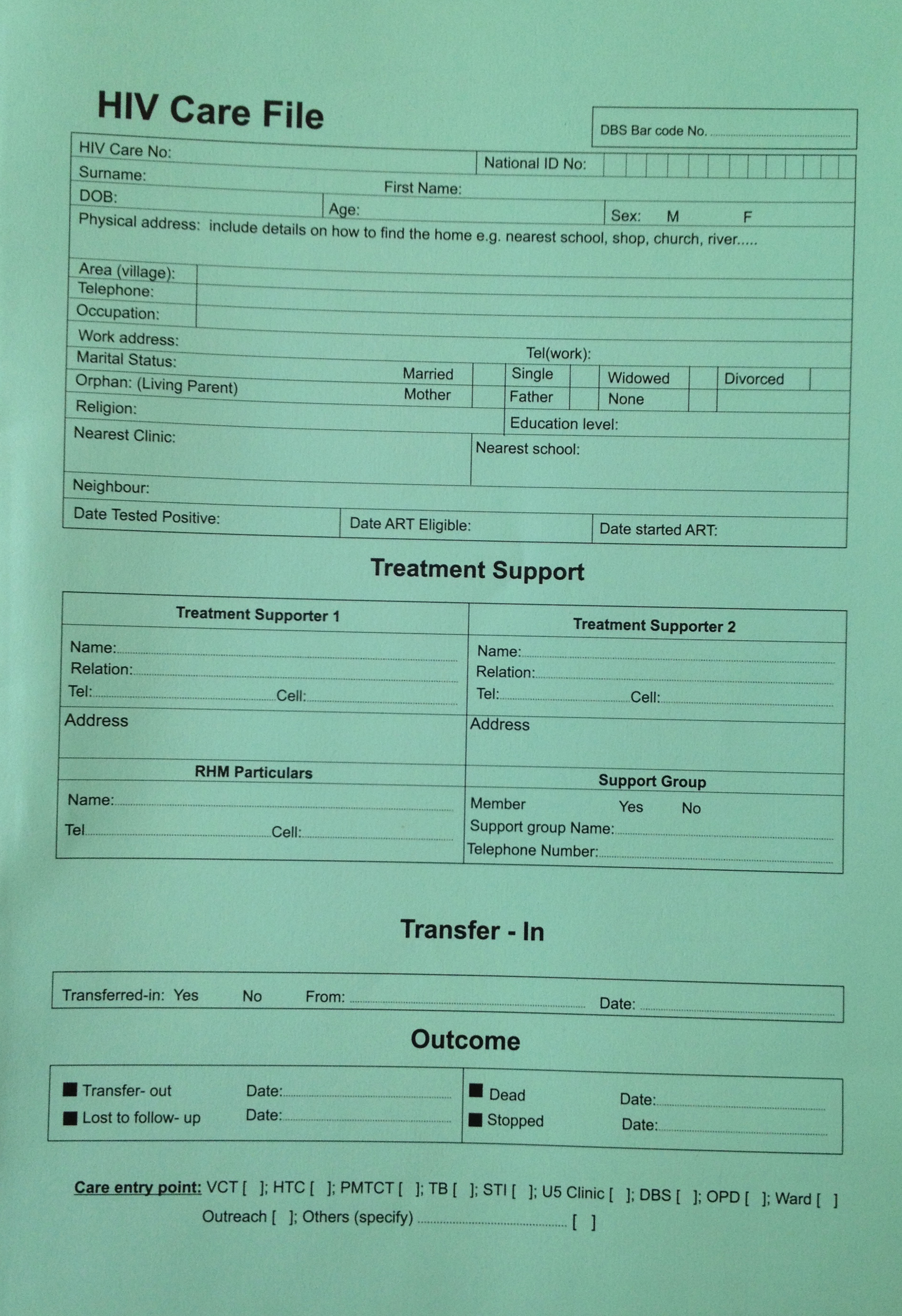Money headaches
Principal among the National ART Programme's many challenges was funding for drugs. Shortages, due sometimes to funding snafus within government, sometimes to logistical complications in dealing with international drug suppliers, occasionally affected treatment delivery. These episodes sometimes prompted political action—an unusual event in the small, tightly controlled monarchy. [27] In August and September 2008, for example, during the run-up to parliamentary elections, Swazi protesters took to the streets to complain about a lack of drugs. The compromise solutions were not ideal—sometimes clinics replaced a prescribed but unavailable medication with one that was on hand; sometimes they even rationed drugs, giving a two-week supply instead of the usual one-month. But Okello defended the measures as justified under the circumstances. As she told the media in 2008: “We have had a challenge of very low stock, but we didn't send anyone home [empty-handed].” [28]
Okello became adept at securing discretionary funds to head off shortages. She kept tabs on the central medical stores and when a shortage appeared imminent, she informed the Ministry of Health's principal secretary. She also contacted the physician most directly threatened by the shortage and asked him or her to also contact the principal secretary and the Ministry's finance controller. "Our finance department is really Ministry of Finance staff who are seconded to Ministry of Health," says Okello. She explains:
So these are people who know the Ministry of Finance system, and they know who to contact. So the principal secretary just needs to talk to the head of the finance department in Health, and then they can hook up something.

An HIV care file from Swaziland
Donor demands. Free money could also be a problem. The National ART Programme had found common ground with ICAP and other international implementing organizations, but Okello sometimes felt that collaboration with international donors increased rather than relieved her workload. For example Global Fund, like all international donors, required strict accounting from its recipients. This proved challenging for the Swaziland government, especially at the clinic level. "Global Fund was 'print, print, file, file, file', but… the facilities were not used to filing. Oh my God, their files were mixed up," says Okello. In 2010, in fact, Global Fund audited Swaziland and, while there was no evidence of corruption, found a lack of adequate accounting controls. As a result, Global Fund called for NERCHA to refund $1.18 million. [29] The government struggled but eventually found the funds.
Another donor, who funded antiretroviral drugs, micromanaged the grant. [30] The donor’s staff dictated the type of medical record files the clinics should use and even where to place computers. "I found it very, very hectic. We found that much of our time was spent responding to the donors," recalls Okello. Worse, donors sometimes withheld money pending the resolution of logistical concerns. “Money for drugs is withheld because they want a report on A, B, C and D,” says Okello. “And even when you do the report, then they’re like ‘no, we’re not satisfied. Go back’.”
Foot the bill . But Okello was working to lessen Swaziland’s dependence on foreign donors. One way to do that was to assume responsibility for ART drug payments. International funding was always intended to be temporary. The goal was to bring the epidemic under control and at the same time develop Swaziland’s capacity to handle the problem. “From the beginning, we have always been told by our donors that you must have a sustainability plan, or a plan for takeover,” says Okello.
Our objective was to transition to a more sustainable method of procuring the drugs. The drugs are the central point in the treatment and care program.
From 2003, when Global Fund began funding antiretroviral drugs in Swaziland, the government had also contributed funds. Every year in his annual speech, the king declared that the country would provide antiretroviral drugs to everyone who needed them. The details of how the government would meet that commitment fell to budget negotiations between the Ministries of Health and Finance. Okello provided the authoritative figures on how many patients would need treatment and the types and quantities of drugs required. "We look at the breakdown of what regimens are being taken up more quickly, so we will estimate so much for this regimen, so much for that regimen, and so much for all the other regimens," says Okello. Each year the projected number of patients increased based on SNAP's goals and capabilities, which were influenced by WHO guidelines. "In every [budget] meeting, I will sit in and explain what has changed," she says.
The government’s goal was to fund purchases entirely, in part to be free of the constraints of international donors. The Swazi contribution started small, but each year the Ministry of Health was generally able to increase the country’s share, depending on what was required to meet the projected need. For example, Global Fund's commitment jumped from $2.3 million (17.9 million emalangeni) in fiscal year 2009-10, to $6.7 million (51.9 million emalangeni) in fiscal year 2010-11. Thanks to Global Fund’s large contribution in ’10-11, the government's share declined from $6.6 million (50.6 million emalangeni) in 2009-10 to $4.8 million (36.9 million emalangeni) in 2010-11. [31] But for the following year, 2011-12, the government's share rose to $8.2 million (63.3 million emalangeni).
[27] “Swaziland: Treatment programme woes,” IRIN , September 18, 2008. See: http://www.irinnews.org/report/80465/swaziland-treatment-programme-woes
[28] Ibid.
[29] The money had gone to purchase 38 vehicles for delivering supplies to clinics.
[30] Okello declined to identify the donor.
[31] The overall budget for antiretroviral drugs, however, rose from $9.3 million (71.3 million emalangeni) to $12.2 million (93.9 million emalangeni) for 2010-11. The Clinton Health Access Initiative (CHAI) and the Joint United Nations Programme on HIV/AIDS (UNAIDS) contributed about $700,000.